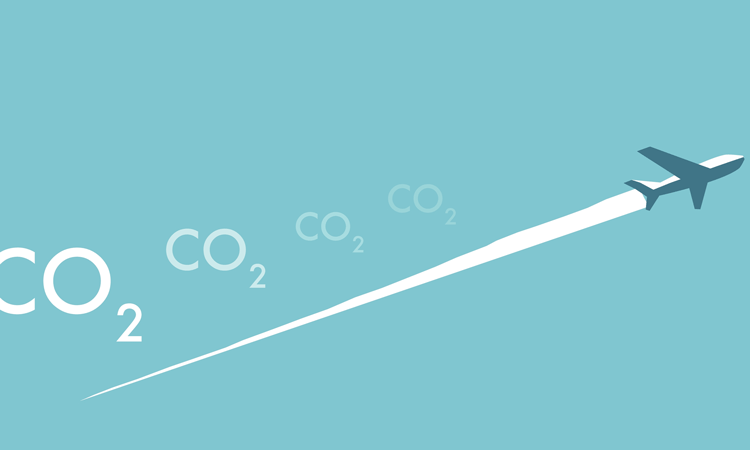ACI Asia-Pacific reports carbon savings despite COVID-19 challenges
- Like
- Digg
- Del
- Tumblr
- VKontakte
- Buffer
- Love This
- Odnoklassniki
- Meneame
- Blogger
- Amazon
- Yahoo Mail
- Gmail
- AOL
- Newsvine
- HackerNews
- Evernote
- MySpace
- Mail.ru
- Viadeo
- Line
- Comments
- Yummly
- SMS
- Viber
- Telegram
- Subscribe
- Skype
- Facebook Messenger
- Kakao
- LiveJournal
- Yammer
- Edgar
- Fintel
- Mix
- Instapaper
- Copy Link
Posted: 30 November 2021 | International Airport Review | No comments yet
Airports Council International Asia-Pacific has revealed results demonstrating that despite the challenges of the COVID-19 pandemic, airports reported continued carbon savings.


Airports Council International (ACI) Asia-Pacific commends its airport members, which despite the challenges of the COVID-19 crisis, reported continued carbon savings. The report was part of the Airport Carbon Accreditation programme publishing its first carbon performance results for the period May 2019 to May 2021 at the 31st ACI LAC/World Annual General Assembly convening in Cancun, Mexico.
In spite of the devastation suffered by the industry at large, the collective carbon management of airports in Years 11 and 12 1 of the programme yielded a reduction of 347,718 tonnes of CO2e (-5.5 per cent) within the emissions under the direct control of the airport operators (i.e. Scope 1 and 2 as per GHG Protocol). Airports in Asia-Pacific contributed to these absolute emissions savings by reducing 73,523 tonnes of CO2 (-2.6 per cent) in their direct purview.2
Since the onset of the COVID-19 pandemic in March 2020, despite the dire financial and operational conditions, 67 new airports joined the global effort to mitigate carbon emissions and thus became certified under Airport Carbon Accreditation. The Asia-Pacific region welcomed the following new airports in the programme:
Level 1 ‘Mapping’:
- Duqm Airport
- Phuket International Airport
- Hamilton Airport
Level 3 ‘Optimisation’:
- Kaohsiung International Airport
Currently, there are 362 airports addressing carbon emissions across the six levels of the programme.


Credit: ACI Asia-Pacific
Stefano Baronci, ACI Asia-Pacific Director General commented: “Airports in Asia-Pacific and the Middle East are working hard to reduce emissions under their control, achieving tangible CO2 reductions even in the thick of the COVID-19 crisis. The latter has had a devastating impact on almost all aspects of airport activity. It is therefore with great pride that I welcome the continued ambition and indeed results of airports’ collective climate effort.”
Baronci added: “I would also like to individually commend and thank the airport operators, who have chosen to utilise their know-how and experience in carbon management to aid their peers through the Airport Carbon Accreditation mentorship initiative. A number of Asia-Pacific and Middle East airports joined this purely voluntary framework, helping to remove entry level barriers through knowledge and best practice sharing with new airports aiming to become accredited.”
Mentor airport operators in Asia-Pacific region include:
- La Tontouta International Airport
- Bahrain International Airport
- Indira Gandhi International Airport
- Hong Kong International Airport
- Rajiv Gandhi International Airport
- Christchurch International Airport (to Hamilton Airport).
References
1) Due to the extraordinary conditions faced in 2020, special provisions were applied to all accredited airports, including the merge of programme Years 11 and 12, which implied the extension of accreditation validity by one year. While the reporting period is May 2019 to May 2021, each airport submitted only one 12-months-carbon footprint in this timeframe. Therefore, the reduction was achieved within one year, but reported at different moments in a two-year-period.
2) Additional carbon performance data as well as a comprehensive overview of other programme developments and airport case studies for the period 2019 to 2021 will be published in the forthcoming Airport Carbon Accreditation Annual Report, planned for Q1 2022.
Related topics
Airside operations, COVID-19, Emissions, Sustainability, Sustainable Aviation Fuel (SAF), Sustainable development
Related organisations
Airports Council International Asia-Pacific and Middle East (ACI APAC & ME)


















